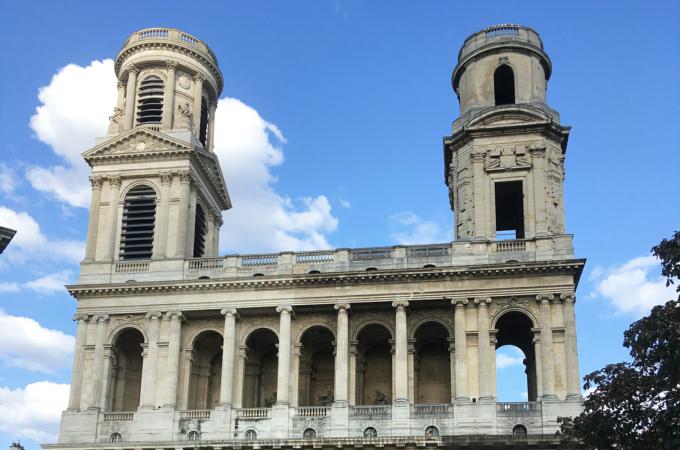The Sulpicians and their role forming Boston's priests
I was fortunate enough to travel to Paris recently and, while planning the trip, saw a reference to the Eglise Saint-Sulpice, or Church of St. Sulpice. I was somewhat familiar with the Sulpicians and their connection to the Archdiocese of Boston and thought it worth sharing some of their history.
The Society of the Priests of St. Sulpice, or Sulpicians, was founded in 1642 by Father Jean-Jacques Olier. At the time, there was little formal training for aspiring priests in France. Father Olier hoped to provide it, making the order's mission "to prepare young men in seminaries for ecclesiastical life, and for Holy Orders, by training them in the knowledge and virtues required by the dignity of the Priesthood and the Sacred Ministry."
On Dec. 19, 1641, Father Olier and several other priests occupied a house in Vaugirard, a Paris suburb, to serve as a small seminary. By March 1642, several seminarians were in residence, but on Aug. 11 Father Olier was named pastor of St. Sulpice Parish, based on Faubourg Street in Paris' Saint-Germain-des-Pres neighborhood. The priests and 12 seminarians followed, and the founding of the order dates to their arrival at the parish.
The Sulpicians were recognized as a religious order in November 1645, granting them a status equal to other religious orders in France, and the following year work began on a new parish church, the one which currently stands. The first part to be completed was the Chapel of Our Lady in 1646. In 1660, the northern transept and choir were added, and most of the structure was completed by 1745 except for the façade, which was commenced in 1733.
As construction began on the church, so too did work begin on two new buildings adjacent to the rectory that would serve as the seminary. In addition to their studies, seminarians were required to help with pastoral duties, and advanced students were able to take theology classes at the College of Sorbonne.
In 1652, Father Olier gave up his position as pastor to focus on the seminary until his death five years later, on April 2, 1657. In the intervening years, bishops in dioceses throughout the country began to see the value of his work and request that Sulpician priests be sent to start seminaries in their dioceses. In the final year of his life, he sent the Sulpician priests to North America where they served indigenous populations in Canada and the United States.
In 1767 they began the College de Montreal, referred to as a college or minor seminary, that aspiring priests from the Diocese of Boston were sent to during the first half of the 19th century to prepare for the priesthood, among whom were Bishop John Bernard Fitzpatrick and Archbishop John Joseph Williams. The latter, as an example, entered the college in 1833, around age 11, and spent the customary eight years there, completing his studies in 1841. He was then sent to the Sulpician seminary in Paris, where he continued theological studies, and was ordained in that city in 1845 and subsequently returned to Boston.
In the summer of 1880, Archbishop Williams would return to Paris to request that the Sulpicians staff a seminary he was planning for the Archdiocese of Boston, and in the summer of 1884 priests from both Paris and Baltimore arrived carrying books with them to start the seminary library. In September of the same year, St. John's Seminary in Brighton, opened for the first time. The Sulpicians would continue to staff the seminary until 1911, when Cardinal William Henry O'Connell, Archbishop Williams' successor, replaced the faculty with diocesan priests.
The order has persevered through much over its long history, most notably the French Revolution, during which the seminary was closed and 11 members lost their lives after refusing to take the oath of allegiance to the Civil Constitution. It continues to operate seminaries and serve missions worldwide, including the first seminary established in the United States, St. Mary Seminary and University in Baltimore, Maryland, which they opened in 1791.
To learn more about the United States Province of Sulpicians, including their ministries, history and how to join, please visit www.sulpicians.org.
- Thomas Lester is the archivist of the Archdiocese of Boston.



















